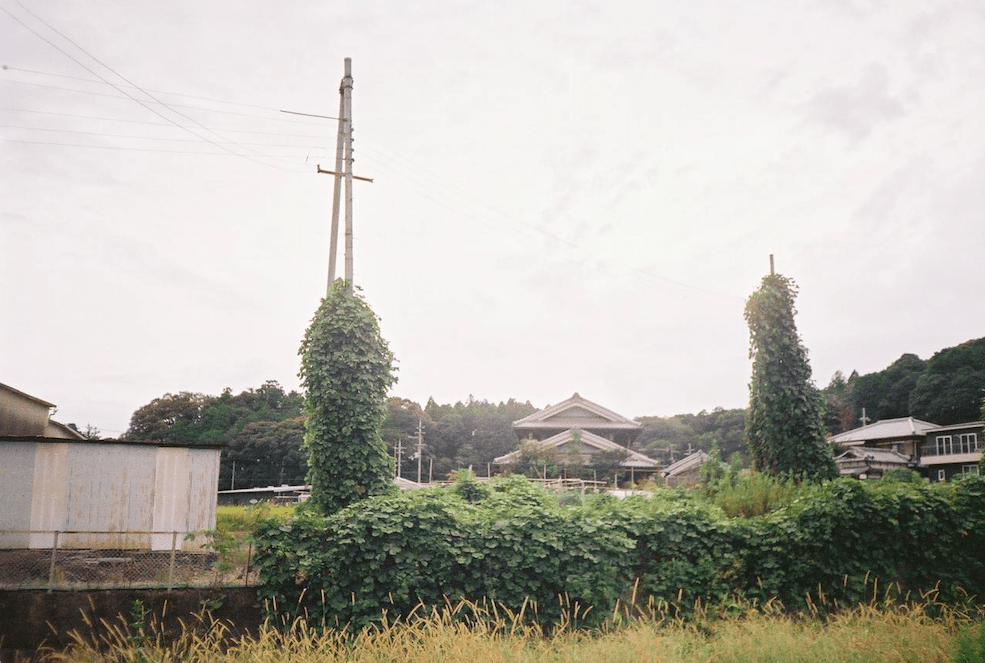by CC Monett (Intern #183)
Instagram: @cc__emx
Interning at Obubu Tea Farms this autumn has been a mix of bodily labor, knowledge-sharing, and deepening connections to the land and vegetation that make this place so particular. One of many initiatives I’ve taken on right here is crafting a information to gardening and farming, particularly aimed on the natural world of Wazuka, and practices that hold our tea fields thriving.
I got here into this mission with my background in anthropology, environmental research, and plenty of hands-on expertise in horticulture. This handbook felt like an opportunity to mix these abilities in a approach that would function a long-lasting useful resource on the farm and for future interns, in addition to a chance for me to spend extra time outdoors.

Whereas weeds come and go, the gardens stay, and dealing in them right here at Obubu has been deeply fulfilling. Caring for backyard areas is my present ardour, and I hope future green-thumbed interns can embrace and construct on this chance as effectively.
1. Observing and Studying
Earlier than placing pen to paper, I frolicked merely observing and listening. At Obubu, tea farming is intertwined with the rhythms of the seasons and native traditions that may’t be realized in a single day. Every day, I realized one thing new from managers and different workforce members—from Obubu’s wealthy tea subject historical past to witnessing struggle with Japanese hornets or Suzumebachi スズメバチ.

I additionally took observe of the vegetation and weeds we regularly take care of and began researching a few of their traits and makes use of. Japanese Poison Hemlock or Doku-ninjin 毒人参 for instance, which I included as a piece within the information, requires particular dealing with and data that’s essential for newcomers to the farm, on account of its toxic nature. Kudzu or Kuzu 葛 is one other weed that many individuals are acquainted with. It was attention-grabbing to notice how prevalent it may be right here in Wazuka, in addition to how it’s interpreted and utilized in Japan—typically changed into kuzu starch. Moreover, since my intern interval was autumn, we had been graced by the gorgeous Pink Spider Lily, or Higanbana 彼岸花, whose toxicity I proved to be true by bearing vivid pink arms after weeding (Oops!).

2. Practicality and Accessibility
In creating this handbook, my objective was not solely to report these strategies however to current them in a approach that’s straightforward to comply with. Many volunteers and interns are right here for only a few months, so I aimed to make it an easy useful resource they might flip to swiftly. Every part contains a mixture of data pertaining to Obubu, normal gardening suggestions, the Wazuka atmosphere, and notes about Japanese natural world. The information principally focuses on vegetation, animals, and knowledge that I encountered first-hand right here, and suspect others coming to Obubu will develop to study as effectively.
3. The Lengthy-Time period Imaginative and prescient for Obubu
One of many issues I’ve come to understand at Obubu is their dedication to continued schooling and sharing data. Each intern and volunteer brings a brand new perspective, and with this handbook, I hope to contribute one thing lasting that may hold that spirit going. It’s not only a information for a few of “how we farm” right here, however a mirrored image of “why” studying about our environments issues right here, in addition to centered care concerning the Obubu grounds themselves. And in capturing that spirit, I hope that it will probably encourage some to enterprise out into the Wazuka wilderness, to backyard at and take care of Obubu, and to proceed capturing data to share at Obubu and amongst associates and workers.

Reflections on the Course of
Penning this handbook was not nearly making a gardening information—it was about studying how one can interpret the pure world via the lens of Obubu, Wazuka, and rising tea. Obubu has given me a lot to work with, from the instruments of tea farming (scythes are sharp!) to an ethos of workmanship that has deepened my very own method to horticulture. All the greatest occasions I had at Obubu had been spent outdoors, in good firm, and surrounded by the pure great thing about Wazuka. Beneath yow will discover the hyperlink to this information.

Get pleasure from Japan, Get pleasure from farming, またね,
CC
Cultivating Data: An Intern’s Information to Obubu’s Natural Supplies



